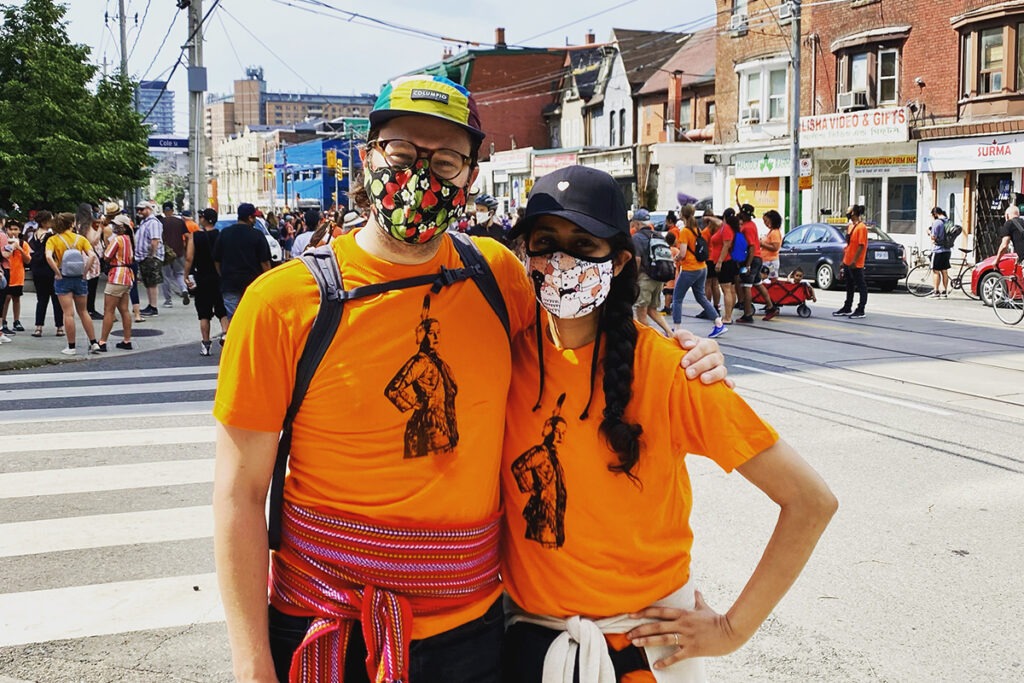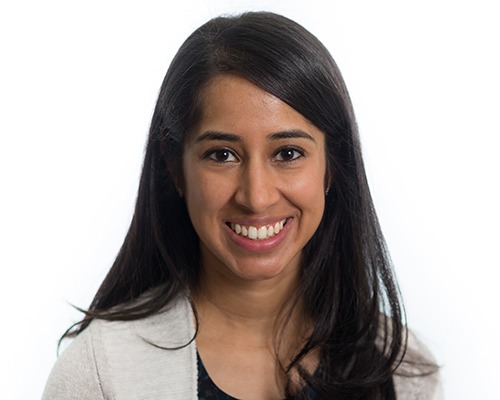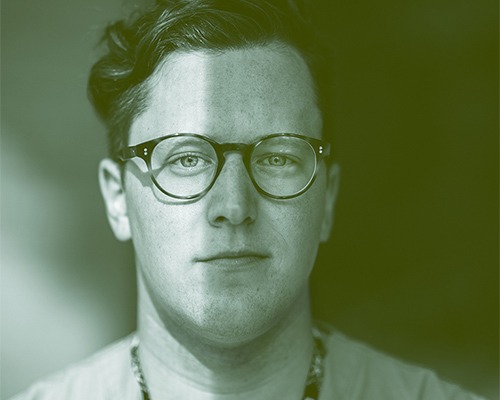‘Kids can be a canary in the coal mine’: Two St. Michael’s pediatricians reflect on their past and seeing themselves in their patients
The Compass Clinic offers trauma-informed, low-barrier, culturally safe care

Dr. Ryan Giroux and Dr. Shazeen Suleman
Two years ago, the Pediatric Department at St. Michael’s Hospital launched the Newcomer to Canada Clinic, to care for children, youth and their families with special health care needs. Since then, it has served over 200 families with a wrap-around, multidisciplinary model of care.
In 2021, the clinic expanded to care for children who are new to Canada, Indigenous patients and families, and children and families may not be newly arrived, but still require interpretation, extra time, immigration/settlement support, school advocacy and navigation. It also changed its name to The Compass Clinic in an effort to better describe the program and the families it serves.
We spoke with Dr. Shazeen Suleman and Dr. Ryan Giroux, pediatricians at The Compass Clinic, about the lens they bring to their practice, the significance of the clinic’s new name and why they believe pediatrics is “the ultimate preventative medicine.”
What has your journey to medicine been like, and why did you choose to specialize in pediatrics?

Dr. Suleman: My family came to Canada from Uganda as refugees, and I’ve grown up in a community that is made up primarily of immigrants and refugees. Many of the individuals in our community have faced persecution in their countries of origin, so I’ve always grown up knowing that the only reason I’m standing here today is because I’m standing on the shoulders of my ancestors. It’s a lucky coincidence that my family had the opportunities, programs and support they had. Were it not for some other chances, I might not be here.
When I was thinking about my career, I chose pediatrics because to me, it’s the ultimate preventative medicine. I don’t look at it like I’m just helping a child right now. I’m helping someone 50 years into the future.
Dr. Giroux: I grew up in Athabasca, which is a small town in Northern Alberta. I’m mixed ancestry – my dad is Métis and my mom is white. I think sometimes growing up in a rural setting, we don’t understand the breadth of the world around us, and it can be difficult for rural kids to succeed in spaces we don’t really understand. As a child, I actually didn’t know that a pediatrician existed.
My sister and I are the first generation in our family to get a degree. We didn’t have the social capital to help us understand how to function. During my undergrad, I connected with a lot of the support services for Indigenous students at the University of Alberta, who encouraged me to try my hardest. I wouldn’t be here without the support of those services and my friends.
In terms of choosing pediatrics, I feel you can have the most impact if you start young – you can work preventatively. Kids can be a bit of a canary in the coal mine. If you are seeing health issues in children, that’s a red flag to me that we need to do better. Sometimes they can’t speak for themselves, so we should do everything we can to lift up their voices, their family’s voice and their community’s voice. Often times, especially in our Indigenous communities – we know what we need. I try to take the power from the position I have to make things better and find solutions.
How does your lived experience influence your practice and the lens with which you approach medicine?

Dr. Giroux: I felt I had a responsibility to my Métis community and the wider Indigenous community in general to focus on Indigenous health. With my lens and my own lived experience that I bring to medicine, it’s one way to help build connections and reconcile the things that happened in our collective pasts.
Dr. Suleman: I was raised with this culture of recognizing, with gratitude, where I come from and knowing that I am not different from others. That’s what drives me in terms of the work I do now – which is caring for children who are new to Canada – because I see my own family reflected back in their stories. I always tell my patients that I hope, one day, they will replace me as the doctor in the very clinic I see them in.
For me, health care is not just about a blood test or your heart and lungs – you can have a condition that is really magnified depending on what kind of social support you have or don’t have. That’s why I try to practice in a way that sees my role as understanding the presentation of an illness in context of person’s life. What that means is not only the way their immediate life is, but also how the community around them supports or does not support them.
You both work at The Compass Clinic – what is the clinic about and why did it rebrand from its former name?
Dr. Giroux: At The Compass Clinic, we provide trauma-informed, low barrier and culturally safe care that isn’t typically available in consulting pediatric clinics.
Dr. Suleman: We recognized that people might label patients as ‘newcomers’ in order for Ryan or I to see them, regardless of whether they were new to Canada, not new or Indigenous, and that was highly problematic. What they were really trying to indicate was that the family needed additional support and the wraparound are that our clinic offers – longer appointment times, or seeing multiple providers at the same time instead of the patient coming back several times. In that spirit, we rebranded as The Compass Clinic to have a much more inclusive feel and capture the essence of what we are doing: helping families find their way.
Dr. Giroux: We didn’t want to be reductive or misrepresent people – not everyone’s lived experience can be folded into the term ‘newcomer’. We also don’t want to apply bias or discrimination that exists to other care providers around those patients. With my addition to the clinic, being Métis, and my focus on Indigenous child health, it was an obvious issue calling Indigenous families ‘newcomers’ because they are actually the opposite – they are the first-comers.
We named it The Compass Clinic as a nod to wayfinding, because we are helping to navigate the system for families that need extra support, and also the four directions we think about in Indigenous health teachings.
What’s the biggest goal for your career, or if you had a magic wand and could solve an issue tomorrow, what would it be?
Dr. Suleman: Pie in the sky? The Compass Clinic would not have to exist because this is the kind of care everybody would get. If everybody could actually get the care they need to thrive and the support they need, if every single clinical space and healthcare encounter could be like what we offer, if it was all trauma-informed, free of any kind of overt or systemic discrimination, if no parent had difficulty getting care they actually need for their child… if those were not a thing, I would be happy. I think the Compass Clinic should actually be a model of care that’s available everywhere and not specific to us.
Dr. Giroux: That sounds like a great utopia healthcare! I would aim for that, but to answer the question of the goal of my career – it’s to connect with patients and families who really need it and are often underserved. I would have them know that someone cares about them, is on their side, will advocate for them, and will help to make changes that their child and family needs – I want to be that person for them.
In terms of systems change, certainly I would love to see a greater availability and emphasis on holistic care for Indigenous families, including easy access to Indigenous healthcare providers, traditional medicines, and ability to access culturally specific care to their own communities and Nations. I want to help move that needle forward.
Is there anything you’d like to add?
Dr. Suleman: I think the reason why we care so much about this is because we don’t see ourselves as separate from our patients. We see ourselves and our families reflected back in them. I think our patients appreciate that – they’ll call me ‘sister,’ or tell me I’m like family to them, or that I care for their children like they’re my own. I had a little boy who was feeling really discouraged about his skin colour, but when he saw that we were the same skin colour, it brightened his day that he looked like his doctor. When you think back to your childhood memories, it’s little things like that that will stay with you.
By: Jennifer Stranges
